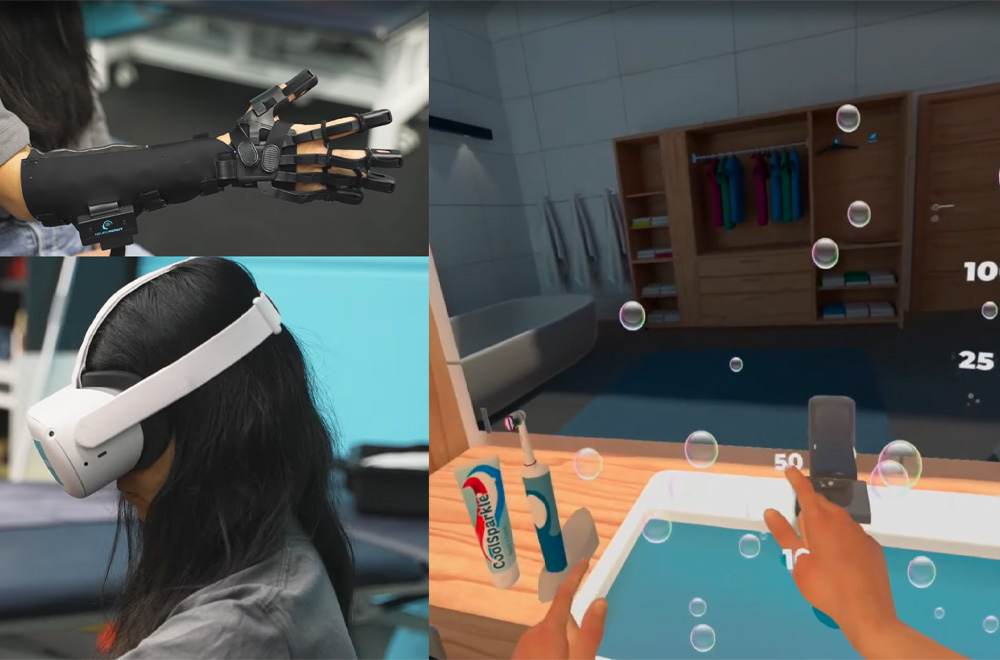A Sydney company, Neuromersiv, is seeking patients to participate in a small-scale feasibility trial using Virtual Reality (VR) therapy, intended to make brain rehabilitation more engaging. It involves performing gamified daily-living tasks using a consumer VR headset and a proprietary wearable, to improve compliance and outcomes in those who have had a spinal cord and acquired brain injury or stroke.
The trials are being conducted in Tamworth, NSW and at a private rehabilitation facility in metropolitan Sydney later this month.
“We are aiming for a total of 20 patients across both sites and the total trial duration would be five weeks with a minimum of three sessions a week and 15-20 minutes of VR therapy per session,” Neuromersiv CEO Anshul Dayal told F2L.
Neuromersiv is a Sydney based start-up that aims to empower stroke, spinal cord and acquired brain injury survivors by helping them regain lost independence and improve their quality of life.
The ‘Ulysses’ upper limb therapy system, which is currently in development, utilises multiple sensory inputs to create the potential to promote the brain’s ability to ‘rewire’ itself which is often referred to as neuroplasticity. The system is being designed with the goal to increase functional movement recovery vital for performing daily living activities.
The unique aspect of the system is the combination of several clinically proven rehabilitation modalities including functional electrical stimulation (FES), sensory electrical stimulation (SES) and somatosensory stimulation (haptics) in a single wearable device. Using the device, patients can undertake gamified functional activities of daily living inside fully immersive VR environments.
Patients that meet the following criteria are encouraged to contact University of Newcastle, lead research investigator, Jodie Marquez on: jodie.marquez@newcastle.edu.au or: 0411 016 840.
- 18 years or older
- Diagnosis of a first -ever ischaemic or haemorrhagic stroke, or traumatic brain injury at least two months prior to enrolment in the study
- Right hand affected
- Upper limb impairment score: score ≥3 on arm item of Motor assessment scale (in supine able to hold arm in elevation and take hand to touch forehead, then extend elbow) and ≥1 on hand item of Motor assessment scale (can extend wrist with forearm supported on table)

